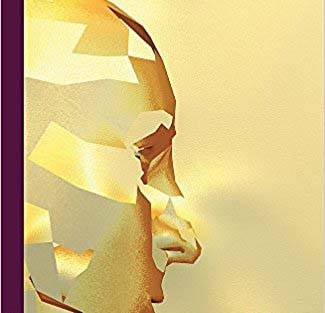
The Tree
“Thus saith the Lord, learn not the ways of the heathen…for one cutteth a tree out of the forest…they deck it with silver and with gold” (Jeremiah 10: 2-4)
If that’s not an invitation, then I don’t know what is. The evergreen tree, amid the bleakness of winter, is nature’s promise that light and life will return once again. As a symbol, it is ancient and powerful. Of course, you may prefer a Festivus aluminium pole as an alternative. Or none at all. But we’re Christmas tree purists in our house – only a real, fragrant, needle-shedding tree will do, lit with real candles at my German husband’s insistence. All this new-fangled fairy-lights and plastic trees nonsense just isn’t pagan enough. Oh, and it must be adorned with a random selection of decorations brought home from nursery school – creations of glitter, glue, pasta shapes and salt-dough – for maximum effect.
The Nativity
It was with dread that I approached my first nativity play as a parent, remembering the reverent productions of my own youth with their shepherds in tea-towel headdresses, bible readings and angels with sellotaped halos. I was surprised and bemused to find that times have indeed changed. Today’s nativity play is more likely to be an all-singing, all-dancing extravaganza, replete with joke-cracking, social satire and references to the X Factor. It feels less like the “proclaiming of the word” and more like a cheeky parody of Christianity.
Santa
This jolly gentleman in red inspires two very distinct and irreconcilable approaches amongst rationalists. There are those who refuse to lie to their children, much less to befuddle their analytical brains with magical nonsense. I’m afraid I’m one of the other sort – an adherent of the school of “isn’t it such fun” and “their own critical minds will soon conquer this childhood-enriching frivolity”. In fact, I like it so much that we do it twice – with St Nikolaus, who fills their shoes with nuts and chocolate on 6 December (the German tradition), and again with his superstar colleague, Santa, who waits until the 24th. As a humanist, however, I am very clear in my mind that these gentlemen cannot read minds, give coal, watch you when you’re sleeping or anything else remotely creepy. And questioning the logic of their existence is very much allowed.
Carols
Any decent celebration deserves a fitting soundtrack. But why do the religious have all the classics, and the secularists the cheesy kitsch numbers? It’s not fair. I actually quite like carols, for the experience of singing with others and the collective good vibes they evoke. And perhaps strangely for an atheist, my favourites are the Latin ones like “In Dulci Jubilo” and “Adeste Fideles”, maybe because I’m less distracted by disagreeing with the lyrics. But there are limits to my open-mindedness. If there is a god after all, he will undoubtedly send me to hell, where he will play Cliff Richard’s “Lord’s Prayer” on continuous loop to torture me cruelly for all eternity. To be honest, there are enough secular Christmas songs that bring me out in a rash too (no, I don’t “wish it could be Christmas every day”). If it all gets too much to bear, there’s always Tim Minchin’s atheist Christmas classic, “White Wine in the Sun”.
Relatives
Closeness to our families at Christmas can be a source of fun, warmth and support. But it can also be suffocating as we stew in over-heated rooms with a toxic mix of booze and boredom. If there are major differences over religion in your gathering as well, it can be explosive. Traditional argument-starters include, on the one side, “you shouldn’t be celebrating Christmas” and “atheism is a religion”. Atheists, for our part, are often guilty of tipsy references to imaginary friends in the sky and snide references to clerical sex scandals. There is also a quieter, more insidious approach that pressurises relatives to conform – to go along to church, or to say prayers before Christmas dinner, “for fear of offending granny”. If, on the other hand, you’re lucky enough to have only paragons of tolerance or champions of free thought populating your clan, then this is the perfect time to show them your appreciation.
The Name
There have been many attempts to rename the festival in order to deny Christians “ownership” of something that is clearly older and more universal than the birth of Jesus. We have Yule and Chrimbo, Solstice and Chrismukkah, Winterval and Krismas. But I’m with Shakespeare on this one – that which we call Christmas, by any other name would still smell like fir trees, mandarins and cinnamon, wouldn’t it? We don’t need to believe in Thor to use the term Thursday, do we? It’s only a name, get over it!
Tradition
I love the fact that there are no constraints on how I celebrate Christmas. No traditions that must be upheld, other than those we wish to. For humanists, it is a blank cheque-book to invent tradition, to revive old traditions and to relive elements of our own childhoods with our own kids. I suppose you could call it the pick’n’mix approach to tradition. Maybe you burn a Yule log? Or make a gingerbread house? Perhaps you even attempt the rather tricky Guatemalan “polo voladore” (flying pole dance), said to please the sun god. My current favourite resuscitation of an ancient custom is the Irish “Nollaig na mBan” (Women’s Christmas) on 6 January as an excuse for Mummy putting her feet up.

